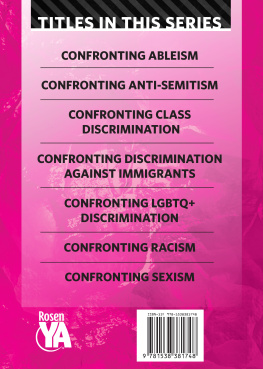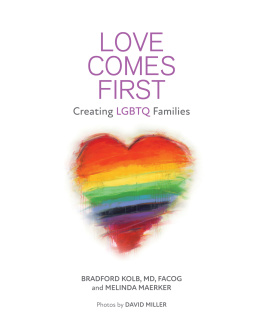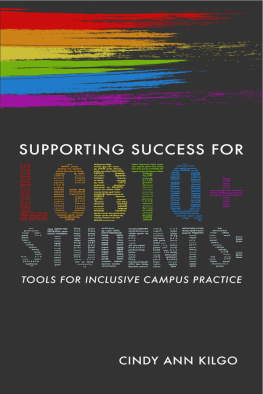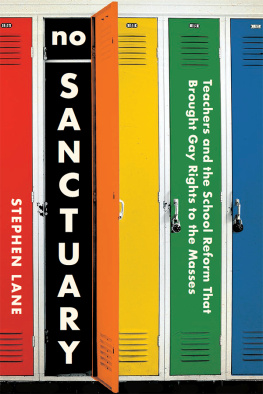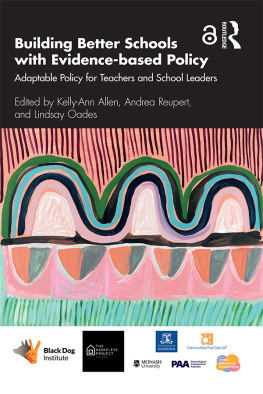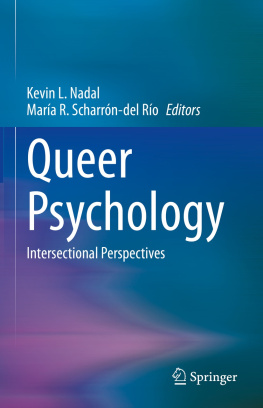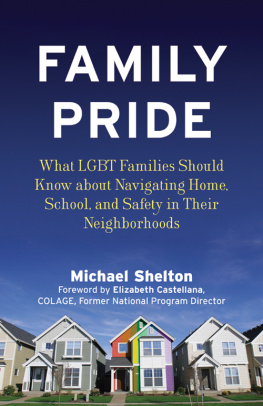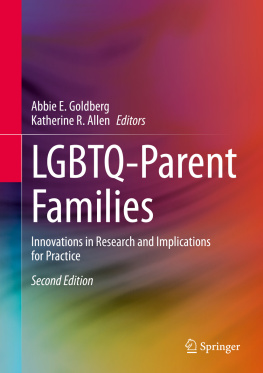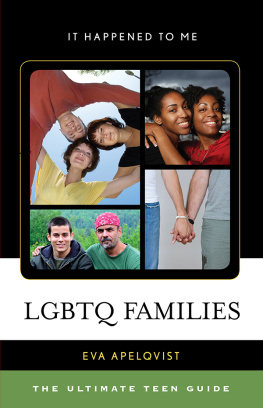Including LGBT Parented Families in Schools
This book explores the experiences of LGBTQ+ parented families in school communities and provides a voice for this overlooked group who are becoming an increasingly common form of family diversity in school communities.
Approaching the topic from a strength-based psychological perspective, the book presents LGBTQ+ parents suggestions for school improvements and supportive structures and provides empirical evidence to inform future LGBTQ+ inclusive education policy.
Research-based yet practically focused, it will be a valuable resource for researchers, students and education professionals alike.
Trent Mann is a casual academic and PhD student in the School of Education at Macquarie University currently lecturing in postgraduate educational psychology units, and a range of educational subjects. His research explores developmental psychology, educational sociology, community health research, inter-disciplinary approaches to research, educational policy and mixed-method research designs with a focus on LGBTQ+ groups in school communities (students, parents/guardians and school staff). Trent was awarded the Faculty of Human Sciences Thesis Excellence Award for his Masters of Research exploring LGBTQ+ parents experiences in Australian school contexts (Mann & Jones).
Tiffany Jones is a Professor in the School of Education at Macquarie University who researches LGBTIQ+ issues in education, education policy, health and social policy. Her peer-reviewed books include new releases Improving Services for Transgender and Gender Variant Youth, A Student-centred Sociology of Education: Voices of Experience, Uplifting Gender and Sexuality Education Research and Bent Street vol. 5.1. Professor Jones liaises and constructs technical, policy and data reports with UN bodies and sits on the editorial board of the peer-reviewed academic journals Sex Education, LGBT Health and LGBT Youth, and edits Bent Street.
First published 2022
by Routledge
2 Park Square, Milton Park, Abingdon, Oxon OX14 4RN
and by Routledge
605 Third Avenue, New York, NY 10158
Routledge is an imprint of the Taylor & Francis Group, an informa business
2022 Trent Mann and Tiffany Jones
The right of Trent Mann and Tiffany Jones to be identified as authors of this work has been asserted in accordance with sections 77 and 78 of the Copyright, Designs and Patents Act 1988.
All rights reserved. No part of this book may be reprinted or reproduced or utilised in any form or by any electronic, mechanical, or other means, now known or hereafter invented, including photocopying and recording, or in any information storage or retrieval system, without permission in writing from the publishers.
Trademark notice: Product or corporate names may be trademarks or registered trademarks, and are used only for identification and explanation without intent to infringe.
British Library Cataloguing-in-Publication Data
A catalogue record for this book is available from the British Library
Library of Congress Cataloging-in-Publication Data
A catalog record has been requested for this book
ISBN: 978-0-367-76501-9 (hbk)
ISBN: 978-0-367-76500-2 (pbk)
ISBN: 978-1-003-16747-1 (ebk)
DOI: 10.4324/9781003167471
Typeset in Times New Roman
by codeMantra
Introducing LGBTQ+ parents in media, culture & education policyn
DOI: 10.4324/9781003167471-1
LGBTQ+ parents reflect on: how others construct them?
My sons are afraid of being bullied and teased in school if anyone sees their trans parent.
(Josephine, 43 yrs, South Australia)
I took my girlfriend to my daughters sports carnival and got dirty looks from parents and teachers. I would be more willing to do these things if I felt more welcome.
(Bella, 33 yrs, Queensland)
...teachers are often shocked or unsure with how to react when learning that my children have two mothers.
(Evelyn, 27 yrs, Queensland)
As a parent who is transgender, despite 50/50 care, my childrens schools and teachers do not tend to regard me as an equal parent, assuming perhaps that I have less input or custody.
(Jordan, 42 yrs, South Australia)
1.1 Introduction
Individuals, couples and extended groups of parents who may identify as or include people of Lesbian, Gay, Bisexual, Trans, and other sexual orientations and gender identities (LGBTQ+) have become a global hot topic. Their controversiality has especially increased with their expanding coverage in the news media, representation in popular culture and manifestation within political/legislative debates as a growing number of countries have legalised recognition of gender transition, marriage equality and alternate family structures in the last two decades. Such representation and recognition are not unproblematic goods, and may shape and misinform assumptions about LGBTQ+ people in schools which LGBTQ+ parents themselves describe in the opening reflections as often absent or negative given a dearth of quality educational material. Further, whilst changes in legislative frameworks are intended to offer LGBTQ+ parents the same legal recognition, protection and rights as heterosexual parents, there has been significant debate around if and how these amendments in laws should be recognised and duly, reflected in schools. However, the key debates and research studies in the area generally fail to include the thoughts and opinions of LGBTQ+ parents themselves, and may indeed also be based on assumptions stemming from less relevant contextual sources and phenomena. Particularly, how LGBTQ+ parents would (and/or would not) like to be included or represented within school contexts, is an unexplored terrain that needs to be considered.
This book addresses such needs by offering educational professionals, policy makers, pre-service educators, advocates/allies, researchers and parents an insightful guide into LGBTQ+ parents perspectives foregrounding their own voices and experiences. It provides overviews of the historical development of LGBTQ+ parent research, research exploring the experiences of LGBTQ+ parents in social contexts, LGBTQ+ parents experiences in their childs school environments, and parents views on how schools can be improved to create more welcoming and inclusive learning environments. This introductory chapter briefly considers the evolving nature of LGBTQ+ parent constructions in three key public realms, to better understand the context for their construction within education and research. First, it considers the representation of LGBTQ+ parents in the public media. Second, it examines the representation of LGBTQ+ parents in popular culture. Finally, it looks at LGBTQ+ rights in policies and highlights various issues in policy and education as key gaps for research and a central concern addressed in the book.
1.2 News media factual constructions of LGBTQ+ parents
The increasing visibility of LGBTQ+ parents in the news media around the world can, in partial ways, reflect the public struggles and views around LGBTQ+ parents with immediacy. Given a dearth of alternate information upon LGBTQ+ parents for school communities (see Josephine and Evelyns reflections in the opening chapter), media may be some education stakeholders first known exposure to them. Thus media on LGBTQ+ parents can be fundamentally educational for viewers on these minorities social value or lack thereof, whether or not intended (Kahn, 2014). This includes media debates about families, where representations of LGBTQ+ parents can be used by the media to challenge delegitimising claims about queer families and seek to defend queer parenthood or, at times, to reinforce hetero-gendered norms (Carlile & Paechter, 2018; Lynch & Morison, 2016; Nguyen, 2015).


